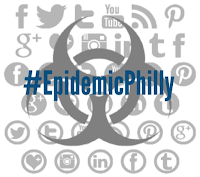Reminder: Science does not happen in a vacuum
by Chris Yarosh It is very easy to become wrapped up in day-to-day scientific life. There is always another experiment to do, or a paper to read, or a grant to submit. This result leads to that hypothesis, and that hypothesis needs to be tested, revised, re-tested, etc. Scientists literally study the inner workings of life, matter and the universe itself, yet science often seems set apart from other worldly concerns. But it’s not. The terrorist attacks in Paris and Beirut and the ongoing Syrian refugee crisis have drawn the world’s attention, and rightfully so. These are genuine catastrophes, and it is difficult to imagine the suffering of those who must face the aftermath of these bouts of shocking violence. At the same time, 80 world leaders are preparing to gather in freshly scarred Paris for another round of global climate talks . In a perfect world, these talks would focus only on the sound science and overwhelming consensus supporting action on climate change, and
